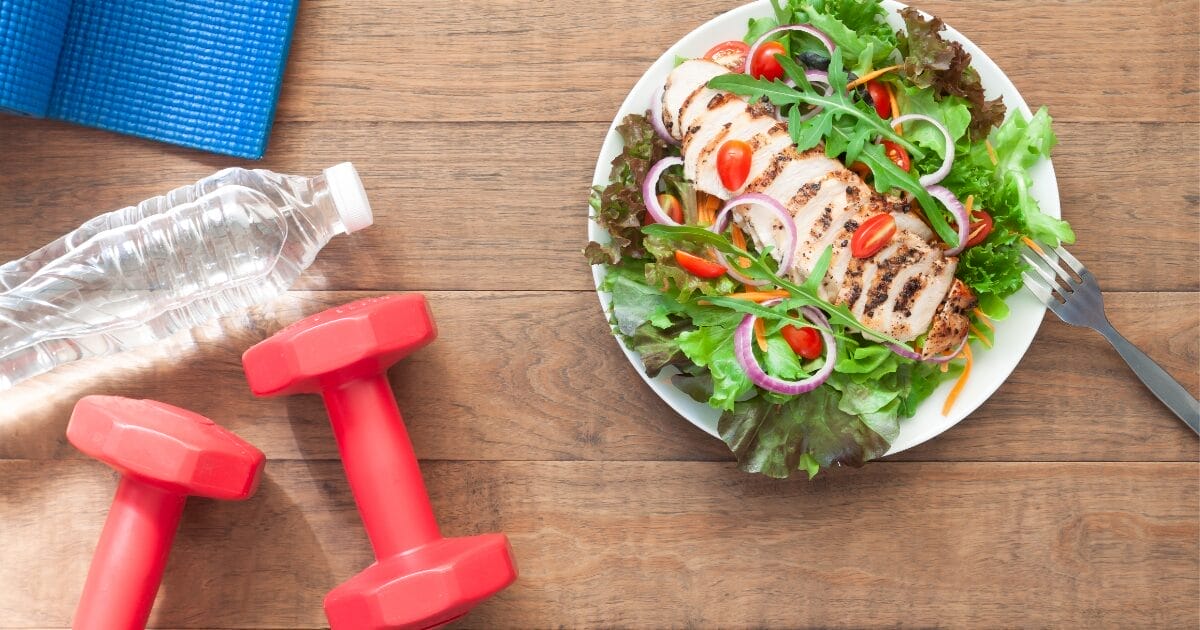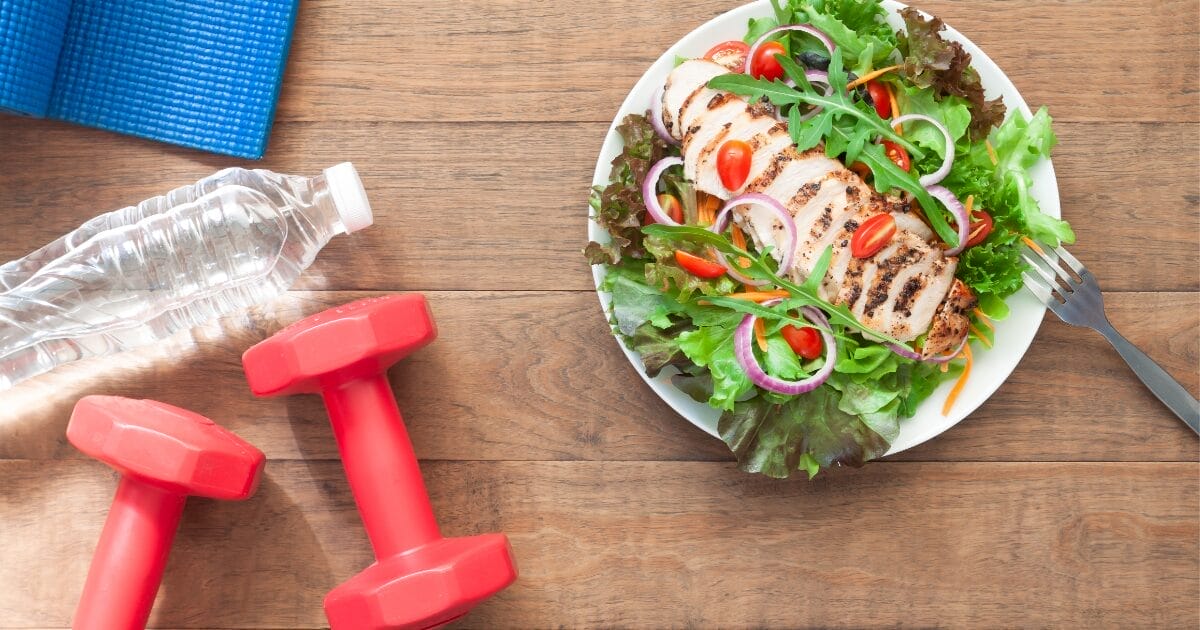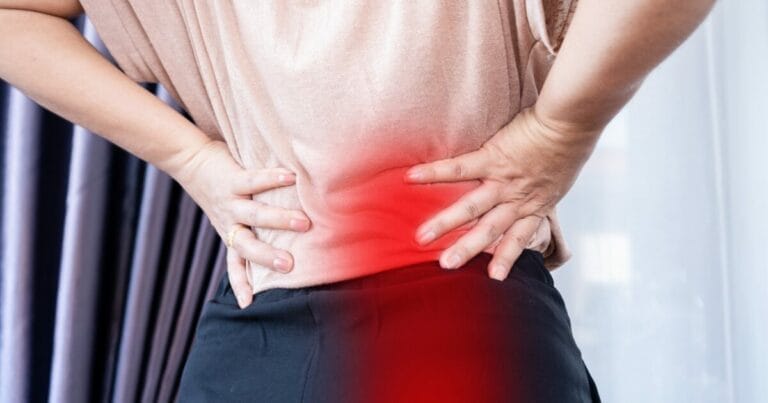12 Smart Eating Habits for Stronger Pelvic Muscles
The integrity of pelvic floor muscles is a cornerstone of physical health that supports a range of vital functions, from continence to sexual well-being. Yet, the conversation around their fortification often gravitates exclusively towards exercise, overlooking a fundamental component: nutrition. In the pursuit of enhancing pelvic muscle strength, the symbiosis between diet and musculature cannot…

The integrity of pelvic floor muscles is a cornerstone of physical health that supports a range of vital functions, from continence to sexual well-being.
Yet, the conversation around their fortification often gravitates exclusively towards exercise, overlooking a fundamental component: nutrition.
In the pursuit of enhancing pelvic muscle strength, the symbiosis between diet and musculature cannot be understated.
Our forthcoming discussion aims to elucidate a dozen dietary strategies that can not only support but potentially augment the resilience of these essential muscles.
Grounded in scientific understanding, we will explore how hydration, macronutrient balance, and specific nutrients contribute to pelvic floor health.
As we prepare to unveil these nutritional keystones, one may begin to appreciate how the plates on our tables can influence the foundations of our bodily structure.
Key Takeaways
Strong pelvic floor muscles are vital for overall health, impacting everything from bladder control to sexual function. While exercises are commonly recommended for strengthening these muscles, the role of a good diet is often overlooked.
Embarking on a journey to boost pelvic muscle strength requires acknowledging the crucial interplay between diet and muscle function. We’re here to shed light on twelve dietary tactics that can not only support but also improve the strength of these crucial muscles.
Backed by scientific research, we’ll dive into the importance of staying hydrated, maintaining a balanced intake of macronutrients, and the specific nutrients that are beneficial for the health of your pelvic floor.
As we prepare to reveal these dietary keys, it becomes clear that what we eat directly affects our physical foundations.
If you’re looking to support your pelvic health through nutrition, remember that:
- Hydration is key for muscle function.
- A balance of proteins, fats, and carbohydrates is necessary for muscle health.
- Certain vitamins and minerals specifically aid in strengthening the pelvic floor.
To conclude, your diet has a significant impact on your pelvic muscles. By embracing these dietary strategies, you can enhance the strength and resilience of these essential muscles. Keep an eye out for more details as we continue to explore this important topic.
Understanding Pelvic Floor Muscles
The pelvic floor muscles, a foundational group of structures supporting the pelvic organs, play a crucial role in maintaining urinary and fecal continence, sexual function, and stability within the pelvis.
Mastery of pelvic anatomy and the integration of targeted exercise are paramount for optimizing the health of these vital muscles.
A nutrient-focused, holistic approach underpins the maintenance and enhancement of pelvic floor function. It is essential to recognize that these muscles benefit from nutrients that enhance tissue repair and muscle function.
Exercise integration into daily routines can fortify these muscles, preventing and addressing dysfunction.
A deeper understanding of both the anatomical intricacies and the nutritional underpinnings provides a comprehensive strategy for individuals seeking to uphold or improve their pelvic health.
The Role of Hydration
Adequate hydration is fundamental to maintaining the optimum function of all muscle groups, including the pelvic floor muscles.
Clinical studies have shown that water intake is crucial for ensuring proper muscle contraction and for facilitating the transport of nutrients vital for muscle health.
Thus, maintaining a consistent and sufficient level of hydration is a key component of a holistic strategy to strengthen pelvic muscles and enhance overall pelvic health.
Importance of Water Intake
Ensuring optimal hydration is crucial for maintaining the strength and function of pelvic floor muscles. Every cell, tissue, and organ in the body requires water to work efficiently. A holistic, nutrient-focused approach underscores the significance of fluid balance in the body. This is not only for overall health but also for the specific support of pelvic muscle function.
Accurate hydration tracking can prevent the deleterious effects of dehydration. Dehydration can lead to muscle fatigue and impaired muscle function. Adequate water intake is essential in maintaining electrolyte balance. This balance, in turn, supports muscle contractions and nerve function.
For individuals aiming for mastery in pelvic health, understanding and prioritizing proper hydration is a fundamental component of a well-rounded strategy for strengthening the pelvic floor.
Hydration and Muscle Function
Understanding Hydration and Muscle Health
Firstly, let’s delve into the importance of water for our muscles. Water isn’t just good for overall health; it plays a key role in how our muscles function. It helps carry nutrients and oxygen to our muscles, including the important pelvic muscles. For these muscles to be strong and react well, getting enough water is crucial.
Equally important is the balance of electrolytes in our body. These minerals are essential for nerve signals and muscle movements. If we don’t maintain this balance, our pelvic muscle performance can take a hit, affecting our core stability and our ability to control bladder and bowel movements.
Moreover, our kidneys rely on water to flush out waste from our muscles. Without enough water, waste products can build up and weaken muscle function. So, staying hydrated is a simple yet effective way to support our pelvic muscles, making sure they work well alongside a nutritious diet.
Balancing Macronutrients
Strengthening Pelvic Muscles: The Role of Macronutrients
When it comes to fortifying your pelvic muscles, what you eat is key. Proteins are vital for fixing and building muscle, while healthy fats—think avocados and nuts—keep your cells in good shape. Complex carbs are also your friend, giving you the energy you need to keep those muscles working well.
Firstly, it’s important to understand that protein isn’t just for bodybuilders. Everyone needs it for healthy muscles, and that includes the ones supporting your pelvis. Think of proteins as the building blocks that help repair any wear and tear your muscles go through daily.
Secondly, fats have had a bad rap in the past, but the right kinds are actually good for you. Monounsaturated and polyunsaturated fats aren’t just good for your heart; they also play a part in maintaining healthy cells, which is crucial for muscle health.
Moreover, carbs are often seen as the bad guy in dieting, but it’s all about choosing the right kind. Whole grains and other complex carbohydrates give you a steady supply of energy, which means your muscles can keep going for longer without getting tired.
Optimal Protein Intake
Optimal Protein Intake
When it comes to building strength in the pelvic muscles and maintaining overall nutritional health, protein is key. It’s essential for the repair and growth of muscle fibers, which includes the muscles you find in your pelvic floor. It’s important to get enough protein from a variety of sources, both animal and plant-based, to ensure you’re getting all the essential amino acids your muscles need to regenerate.
If you’re looking to boost your muscle strength, snacks packed with high-quality protein can make a big difference. Think about enjoying some Greek yogurt with a handful of nuts or a tasty quinoa and black bean salad. For those on a plant-based diet, foods like lentils, tofu, and tempeh are not only rich in protein but also pack other nutrients that are great for muscle health.
Remember that having a good protein intake plan is crucial if you’re trying to improve your pelvic muscle function with a diet-focused approach. Let’s not overlook the importance of variety in our protein sources to achieve the best results for our muscles.
Healthy Fat Selection
While protein plays a pivotal role in strengthening pelvic muscles, incorporating healthy fats into one’s diet is equally crucial for balancing macronutrients and ensuring optimal muscle function.
High-quality fats are essential for the absorption of fat-soluble vitamins and the production of hormones, which in turn aid muscle repair and growth.
Avocado benefits extend beyond its rich, creamy texture; it is a prime example of a food that delivers monounsaturated fats, promoting heart health and supporting the integrity of muscle cells.
Selecting fats with a favorable omega-3 to omega-6 ratio is imperative to manage inflammation in the body, which can affect muscle health.
A diet that smartly includes a variety of healthy fats can enhance overall pelvic muscle strength and functionality.
Complex Carb Benefits
Integrating complex carbohydrates into one’s diet is fundamental for maintaining energy levels and supporting the repair and growth of pelvic muscles, due to their ability to provide a sustained source of fuel. The holistic benefits of complex carbohydrates are manifold, and a deeper understanding of their impact can facilitate a more structured nutritional strategy for muscle health.
- Carb Timing: Aligning the intake of complex carbs with activity levels ensures a continuous energy supply, optimizing muscle performance and recovery.
- Glycemic Index: Choosing complex carbs with a lower glycemic index supports stable blood sugar levels, reducing the risk of energy spikes and crashes.
- Nutrient Density: Complex carbs are often high in essential nutrients, providing a synergetic effect that enhances overall pelvic muscle function and health.
Fiber-Rich Foods Importance
Eating plenty of fiber is key to keeping your pelvic muscles strong. It helps with regular bowel movements, taking the strain off these muscles. For good digestive health and to stop the problems caused by straining, a fiber-filled diet is essential. It’s not just about muscle strength – it’s about your whole digestive system.
Firstly, you should know that sources like beans, whole grains, fruits, and vegetables are great for getting both kinds of fiber – soluble and insoluble.
Secondly, this kind of diet will help your digestive system work at its best and keep your pelvic muscles tough.
Remember that choosing the right foods is critical to your health. It is essential to understand why certain foods are beneficial and not just eat them because you are told to. Fiber is one of those nutrients that might not seem exciting but has a big impact on our bodies.
When you’re trying to improve your diet, look no further than plant-based foods. They’re packed with the fiber you need. Moreover, they come with a bunch of other benefits, like vitamins and minerals that your body loves.
In conclusion, if you want a diet that goes the distance for your digestive health and your pelvic muscles, fiber is your friend. It’s about making smart choices in what you eat every day. It’s easy to overlook fiber, but its benefits are huge.
Omega-3 Fatty Acids Benefits
Omega-3 Fatty Acids and Their Role in Muscle Health
When we talk about maintaining muscle health, especially for the pelvic area, omega-3 fatty acids are a game-changer. They have anti-inflammatory effects and support muscle repair, which is essential for anyone looking to improve their physical well-being. The body doesn’t produce these fats naturally, so we must get them from our diets or through supplements. Let’s dive into the details:
- If you’re looking to boost your intake of omega-3s, fatty fish like salmon, mackerel, and sardines are excellent choices. They not only support muscle health but also help reduce inflammation that might trouble your pelvic muscles.
- These fats are also key players in muscle protein synthesis, which comes into play after you’ve done pelvic floor exercises and need to repair those muscles.
- For those who can’t consume fish, there are alternative supplements available, such as fish oil or algae-based capsules, ensuring that everyone can access these beneficial nutrients.
Understanding the value of omega-3 fatty acids in our diet is vital for overall muscle care, including our pelvic muscles. So next time you’re planning your meals or supplements, remember to include these powerful fats for a stronger, healthier body.
Custom Quote: ‘Embrace the strength within – omega-3 fatty acids are your ally in the journey to robust pelvic muscles and beyond.’
Calcium and Vitamin D Sources
Calcium and vitamin D are essential for keeping our pelvic muscles robust and bones healthy. If you’re looking for calcium, dairy products, leafy vegetables, and certain fortified items are great choices. Those who can’t have dairy can opt for alternatives like fortified plant-based milks and juices, which provide the same nutritional benefits.
For vitamin D, which is crucial for absorbing calcium and ensuring the health of pelvic muscles, you can turn to the sun for natural synthesis. You can also find it in foods like fatty fish and egg yolks, and it’s often added to dairy-free milks.
Firstly, it’s important to understand that calcium does more than just build strong bones; it’s also vital for muscle function. And when it comes to vitamin D, it doesn’t just help with calcium absorption; it’s fundamental for overall bone integrity.
Furthermore, for those who are lactose intolerant or prefer not to consume dairy, there are plenty of dairy-free options that are fortified with calcium and vitamin D, ensuring that everyone can get these vital nutrients.
Collagen-Boosting Foods
Building upon the foundation of strong bones and muscles through adequate calcium and vitamin D, it is also beneficial to consider the role of collagen-rich foods in supporting the integrity and function of pelvic muscles. Collagen, a primary structural protein, is pivotal not only for skin health but also for joint support and the resilience of connective tissues within the pelvic region.
To augment collagen synthesis, integrate the following nutrient-dense foods into your diet:
- Bone Broth: A traditional source rich in collagen, providing the amino acids necessary for its production.
- Citrus Fruits: High in vitamin C, essential for collagen formation and cross-linking.
- Leafy Greens: Contain antioxidants and chlorophyll, which have been linked to increased collagen production.
A diet inclusive of these elements supports a holistic approach to strengthening pelvic muscles and overall well-being.
Anti-inflammatory Dietary Choices
Embracing an anti-inflammatory diet can play a crucial role in strengthening pelvic muscles by reducing systemic inflammation and promoting tissue repair and recovery. Identifying and avoiding inflammatory triggers such as trans fats, sugar, and processed foods is foundational in this strategic approach. Instead, emphasize foods rich in omega-3 fatty acids, like salmon and flaxseeds, which are known for their potent anti-inflammatory effects.
Incorporate a diverse array of colorful fruits and vegetables to ensure a comprehensive spectrum of antioxidant support. These antioxidants help neutralize free radicals, mitigating oxidative stress that can otherwise impair muscle function.
The holistic integration of anti-inflammatory foods into one’s diet supports a robust pelvic floor by fostering an optimal environment for muscle strength and endurance, essential for overall pelvic health.
Frequently Asked Questions
Can Certain Food Intolerances or Allergies Impact the Strength of Pelvic Floor Muscles?
Certain foods that don’t agree with our bodies can cause inflammation. This inflammation can affect different parts of our bodies, including the muscles that make up the pelvic floor. To keep these muscles strong, it’s really helpful to focus on eating nutrient-rich foods and understanding what your body can and cannot tolerate.
Imagine finding out that the reason your pelvic floor muscles might not be as strong as they could be is because of something you ate. By figuring out and managing any food intolerances or allergies you might have, you can help reduce inflammation in your body. This, in turn, could help your pelvic floor muscles become stronger.
Remember that eating well is key for maintaining muscle health. It’s not just about avoiding certain foods; it’s also about making sure you’re getting the right nutrients. And if you’re feeling overwhelmed by where to start with this, don’t worry—we’ve got the information you need to take control of your health.
In short, while food sensitivities might play a role in the strength of pelvic floor muscles, you have the power to manage and improve your situation. By being mindful of what you eat and how it affects your body, you can take positive steps towards a healthier and stronger you.
How Does Caffeine Consumption Affect Pelvic Floor Health, and Should It Be Limited?
Caffeine acts as a diuretic and could worsen bladder irritation, potentially compromising the health of your pelvic floor. Cutting back on caffeine might help maintain the strength of your pelvic muscles and is part of a broader approach that emphasizes nutrition for those aiming to improve how their body works.
When considering the influence of caffeine on pelvic floor health, it’s essential to recognize that caffeine can cause more frequent urination. This increased urination might lead to a strain on the pelvic floor muscles over time. For individuals who are experiencing pelvic floor issues, reducing caffeine consumption could be a helpful step in managing symptoms.
Moreover, a diet that focuses on nutrients can support overall well-being, including pelvic floor health. Embracing a well-rounded diet may enhance muscle function and contribute to better health outcomes. Remember that it’s not just about reducing caffeine; it’s also about what you add to your diet, such as foods rich in fiber, protein, and essential vitamins and minerals.
Are There Any Specific Dietary Recommendations for Individuals Recovering From Pelvic Floor Surgery?
For individuals recovering from pelvic floor surgery, proper nutrition is key to a successful healing process. It’s essential to include a diet rich in protein, vitamins, and antioxidants, as these nutrients are fundamental in repairing tissues and supporting overall recovery after pelvic floor surgery.
Protein is particularly important because it helps rebuild muscle and other tissues that may have been affected during surgery. Incorporating lean meats, beans, and legumes into meals can significantly enhance the body’s ability to heal.
Vitamins and antioxidants play a vital role as well. For instance, vitamin C is known to aid in the production of collagen, which is a crucial component of connective tissue. Antioxidants help combat potential damage from free radicals, which can impede the healing process. Foods such as berries, leafy greens, and nuts are packed with these beneficial compounds.
How Does the Timing of Meals Interact With Pelvic Floor Muscle Exercises?
Synchronizing your meals with exercise could improve muscle function. To properly support pelvic floor recovery, it’s important to eat at the right times, combining this practice with a well-researched, comprehensive approach for those aiming to fully recover their muscles and enhance overall wellbeing.
If you’re looking to get the most out of your pelvic floor exercise routine, remember that timing your meals can be beneficial. It’s not just about what you eat, but when you eat that supports your body’s ability to recover and strengthen. By coordinating your meal times with your workout schedule, you’ll provide your body with the nutrients it needs exactly when it needs them.
Furthermore, as we navigate today’s health-conscious society, it’s important to focus on strategies that are supported by scientific evidence. This means looking beyond trendy diets and unfounded claims, and instead embracing practices that have been proven effective.
Can a Ketogenic Diet or Other High-Fat, Low-Carb Diets Influence Pelvic Muscle Tone and Function?
Diets high in fat and low in carbohydrates could potentially change how muscles, including those in the pelvic region, use energy because they put the body into a state called ketosis. To really understand what this means for our health, we need to dive deeper into the science. It’s important to know how these diets might affect the muscles that support pelvic organs and control bladder and bowel function.
Let’s embark on this journey of discovery by exploring the connection between diet and muscle health. When we talk about a high-fat, low-carb diet, we’re looking at a way of eating that drastically reduces carbohydrates and increases fats. This switch can cause our bodies to burn fat for energy instead of carbs, a process known as ketosis.
It’s essential to understand that while these diets have gained popularity for weight loss, their effect on other aspects of health, such as muscle function, is not as clear. Pelvic muscles are vital for many bodily functions, and any changes in their tone and strength can have significant consequences.
Current research suggests that muscle fuel utilization does indeed change when in ketosis, which could affect muscle function. However, we need more studies to clarify this potential impact. It’s equally important to consider diet within the context of overall nutrition. A diet that’s good for one part of the body might not be for another.







